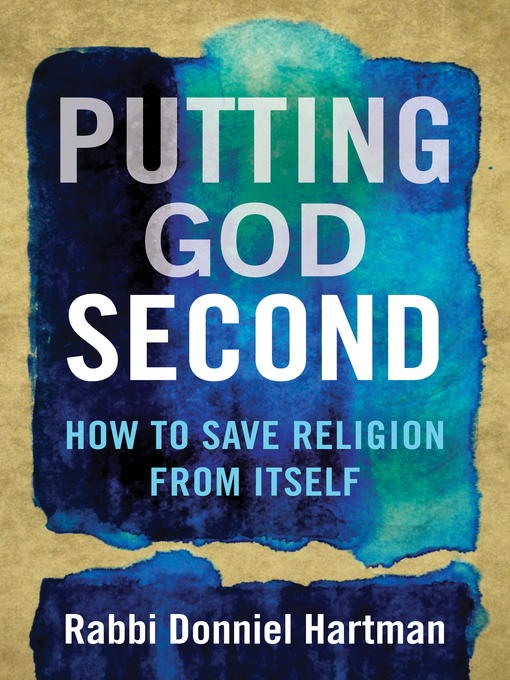
Putting God Second
How to Save Religion from Itself
کتاب های مرتبط
- اطلاعات
- نقد و بررسی
- دیدگاه کاربران
نقد و بررسی

December 14, 2015
In this accessible exploration of how faith in God can determine and influence personality, Hartman (The Boundaries of Judaism) successfully engages with what he believes to be the most fundamental question of our time. He notes that the causes of the worldâs great conflicts have begun to shift from ânational and secularâ politics to religious ones. Given this, Hartman wonders whether religion actually makes believers treat others with more compassion and kindness. Despite his own deep commitment to Judaism, the rabbi does not flinch from exposing many examples, including some from the Bible, that argue against the idea of religion as a force for good. Using his own religion as his lens, Hartman analyzes the phenomena he labels God Intoxication and God Manipulation; in the former, obsession with paying attention to the divine leaves âless room... to be aware of the human condition,â and in the latter, âGod is drafted in the service of human self-interestâ to advance an individualâs personal interests and agendas. Hartman makes a powerful case that believers should both judge the word of God and âbe inspired and instructedâ by it, and that putting people first is the real way to follow the divine will.

December 1, 2015
Why, asks Hartman (The Boundaries of Judaism, 2007, etc.), do so many religious groups and individuals fail to live up to the standards of their faith traditions?Why do people who purport to follow an almighty and benevolent God so often resort to contention at best, violence at worst? Hartman asserts that religion maintains innate "autoimmune diseases" that stem not from the ethical failings of individual believers but from built-in faults of religion itself. He identifies two such problems. First is "God intoxication," which causes followers to place God ahead of all moral and ethical decisions. Abraham's willingness to sacrifice his son without argument or hesitation is the prime biblical example. Such thinking leads to individual acts of injury against innocent people in the name of God's honor. Second, "God manipulation" is characterized by the belief that God is on the side of a particular faith tradition, blessing and nurturing that group's actions over and against those of other faiths. This thinking has led to the cycles of religiously induced violence seen throughout human history. Hartman addresses ways in which faith traditions can break free of these "diseases." Namely, he advocates putting God second while putting ethical considerations first. "Religion will be saved from itself, its autoimmune diseases cured once and for all," writes the author, "when we recognize that by putting God second, we put God's will first." As Hartman notes, "God is not in competition with the ethical, for God desires the ethical above all else." The author realizes that some of his conclusions will lead to controversy, but he believes religion must overcome these problems in order to flourish in modernity. By invoking a wide array of ancient Jewish sources, Hartman forms a learned, solid argument for changing the direction of Judaism and, more widely, of monotheism itself. By challenging religion's deepest understanding of its role, Hartman pleads for change. A stimulating and sure-to-be discussed critique of monotheism.
COPYRIGHT(2015) Kirkus Reviews, ALL RIGHTS RESERVED.

February 1, 2016
How can religion do so much good while also being responsible for much that is bad? Is there any way to keep the good and avoid the bad? These are the key questions Hartman (The Boundaries of Judaism) attempts to answer in his latest book. As a rabbi, the author focuses on Judaism, though he sees similar issues both in Christianity and Islam. Two particular problem areas are discussed. The positive, though intense, emphasis on God can lead to "God intoxication," in which the ethical dimension of the faith is neglected. Likewise, the positive idea of being a chosen or elect people of God can lead to "God manipulation," in which religion is used to promote self-interest. Hartman argues that the primary focus of Jewish tradition is on moral or ethical actions. He sees a return to this emphasis to be a key to avoiding the harmful elements of the faith. VERDICT This thoughtful and well-written book will be helpful for those interested in the Jewish faith and in religious ethics.--John Jaeger, Dallas Baptist Univ. Lib.
Copyright 2016 Library Journal, LLC Used with permission.

























دیدگاه کاربران